Often, one book is just not enough to tell a story. Especially books that imagine the infinite possibility inherent in the future. Some authors are able to create whole literary universes, spanning thousands of years of history as human beings develop our scientific and technological abilities and use them to explore time, space, and the unknown.
Sometimes authors receive an unrelenting stream of requests to expand a beloved singular work. However they come into being, science fiction series have captured the hearts, minds, and imaginations of readers young and old.
Narrowing down any genre to only ten works is quite a challenge. Based on my own reading, and on the collective suggestions of the science fiction fanatics of the internet, here are the series I have settled on. This list is certainly up for interpretation, and the series listed here are in no particular order.
10. Ender’s Game by Orson Scott Card
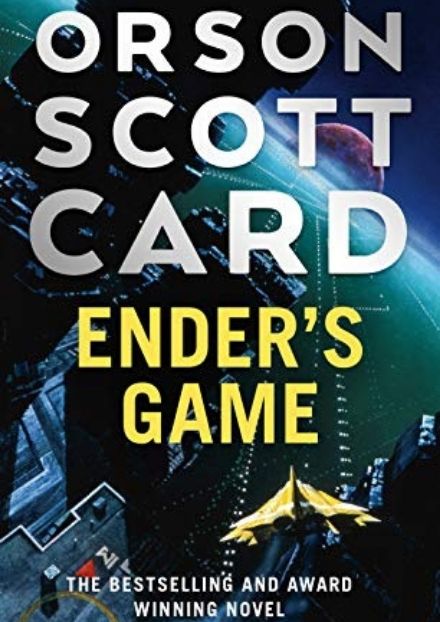
Now a collection of several series with nineteen publications in total, the first and titular work won the 1985 Nebula Award and 1986 Hugo Award for best science fiction or fantasy novel. With humanity imperiled by an imminent conflict with an insectoid alien species known as ‘the Buggers,’ a young Ender Wiggin is recruited to train at the Battle School space station, where he and other promising children play war games in zero gravity and study military strategy. After playing his role in the conflict, Ender goes on to travel to other worlds and wrestle with the consequences of his actions.
The Shadow Saga follows the lives of other characters from the first book including Ender’s brother and other children from the Battle School. The Formic Wars series details the events of the first two conflicts with the Buggers that precede Ender’s Game. Card has begun a fourth series called Fleet School, for young adults about what becomes of the Battle School after it no longer has a purpose.
Why we recommend it: The series begins with a gripping plot and a massive twist but eventually develops into so much more. It explores complex philosophical themes as it follows Ender on his journey and delves more deeply into the stories of a host of different characters.
9. The Hitchhiker’s Guide to the Galaxy by Douglas Adams
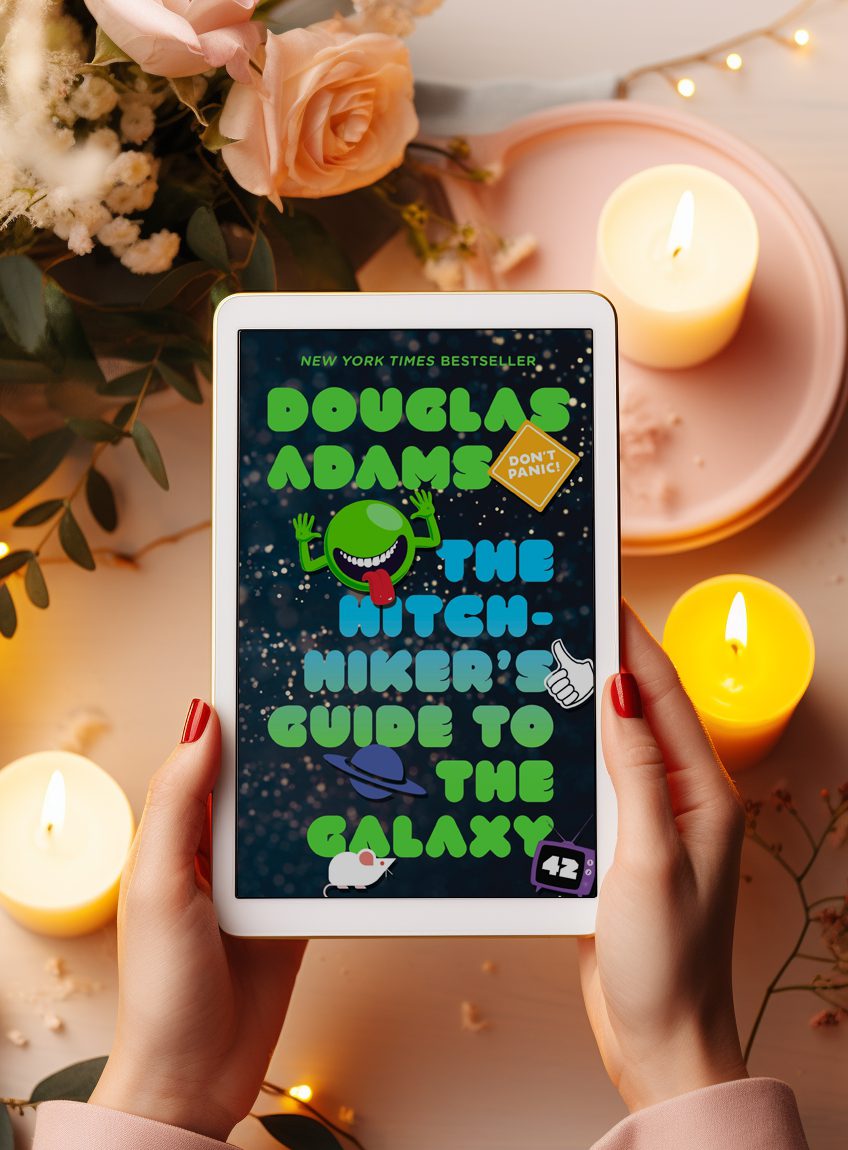
Equal parts comedy and science fiction, The Hitchhiker’s Guide to the Galaxy may be the greatest trilogy of five books (now six, with another written by Eoin Colfer) ever written.
The series follows Englishman Arthur Dent after he is rescued from an act of interstellar eminent domain in which an alien race destroys the earth in order to build a hyperspace bypass. Dent learns of the true nature of his home planet and wrestles with some of life’s biggest questions as he travels throughout the galaxy with his friend and rescuer Ford Prefect, an alien contributor to the titular guide, galactic president Zaphod Beeblebrox, a depressed robot named Marvin, and fellow human Trillian.
Why we recommend it: Adam’s particular brand of zany, absurd humor pairs perfectly with the deep philosophical questions explored in the series.
RelatedThe Sci-Fi Book That Took 51 Years To Be Published
8. Dune by Frank Herbert

Frequently topping lists of the best sci-fi series and another winner of both the Hugo and Nebula awards is Frank Herbert’s Dune Chronicles, made up of six books and recently adapted into a two-part blockbuster film series.
Set thousands of years in the future and covering a span of thousands of years, the series primarily details the political struggle for control of the harsh desert planet Arrakis. The planet is of particular interest to the great houses, as it is the only source of ‘the spice’ Melange, the most valuable substance in the universe due to its use in interstellar travel.
The exploitation of the spice leads the great houses into conflict with each other, with the local human population, the Fremen, and with the giant sand worms that also call Arrakis home. Navigating this quagmire of competing interests is Paul Atreides, who develops superhuman abilities as his prowess as a leader grows
Why we recommend it: The complexity of the plot and detail of Herbert’s world-building offer much for readers to sink their teeth into. The role of artificial intelligence in the backstory and the interplay of politics and religion are as relevant today as ever if not more. And at the end of the day, it is an absolute classic.
Enjoying this article?
Subscribe to our weekly newsletter7. The Foundation by Isaac Asimov

Originally published as a collection of short stories, Asimov would later compile them into a trilogy that won the 1966 one-time Hugo award for ‘best all time series.’ He later wrote two more sequels and two prequels for a total of seven novels. Hari Seldon’s new mathematical understanding of sociology, and psychohistory, predicts the collapse of the galactic empire and a thirty thousand-year period of darkness before a new empire can rise in its place.
The series details some of the events that occurred as result of this collapse and of Seldon’s plan to preserve science, art, and technology in order to limit the damage and duration of the Dark Age to only one thousand years.
Why we recommend it: Foundation is another massively influential work that takes place on a scale that can be difficult to wrap one’s head around. Idea rather than character-driven, the series draws inspiration from historical events and forgoes descriptions of epic battles in favor of dialogue. It is full of twists and turns in its exploration of group psychology and political decline.
6. The Expanse series by James S. A. Corey

The Expanse consists of nine novels and takes place in the future when improvements in propulsion systems have allowed humans to colonize the solar system. It primarily follows the crew of the gunship Rocinante as they try to protect the system from a mysterious alien threat as well as the unstable political situation between Earth, Mars, and the various space stations in the Asteroid belt.
Why we recommend it: Though lengthy, The Expanse is more accessible than many other works in the genre. It explores an interesting space in the science fiction realm in that the possible future it presents feels like it could almost be right around the corner, rather than in a far distant future or unknown galaxy.
RelatedFans Of Silo Rejoice: The Author Is Releasing 3 More Silo Books!
5. Hyperion Cantos by Dan Simmons
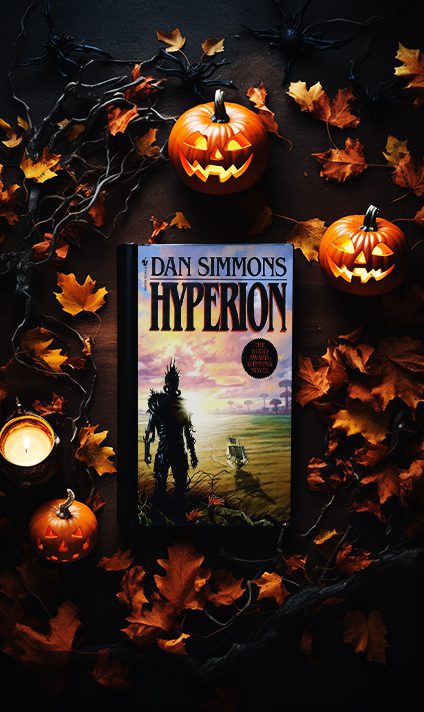
A collection of four books and three short stories, Hyperion presents two pairs of novels, Hyperion and The Fall of Hyperion, as well as Endymion and The Rise of Endymion. Faster-than-light travel and instantaneous communication have allowed humanity to colonize several hundred new planets.
In the first two books, amidst the chaos of a galactic war, the Hegemony that governs the human world sends a group of travelers to the planet Hyperion, the location of time-traveling artifacts and a mysterious cyborg creature known as The Shrike. The second two books take place several hundred years later when Raul Endymion must protect a new messiah from the Catholic Church, unraveling the secrets of the Shrike and of the universe itself along the way.
Why we recommend it: The series is wildly imaginative and weaves together many unique ideas and the stories of a diverse group of compelling characters. Beginning as a frame story and making reference to a wide range of works that came before it, Hyperion is sure to delight those who read broadly as well as dedicated fans of science fiction.
4. Rendezvous with Rama by Arthur C. Clarke and Gentry Lee

The Rama series begins with the entry of a large, mysterious cylindrical object into the solar system and the crew sent to investigate it. The interaction raises more questions than it answers until a second object arrives and the adventure continues. There are four books in the main series and two more written by Gentry Lee in the wider Rama universe.
Why we recommend it: Rama is a slow-burn mystery that doesn’t get too bogged down with larger philosophical questions or delve too deeply into character development but rather allows the reader to experience the mystery more or less firsthand.
Related5 Science Fiction Books Young Adults Will Read In One Sitting
3. Remembrance of Earth’s Past Trilogy (The Three-Body Problem trilogy) by Liu Cixin
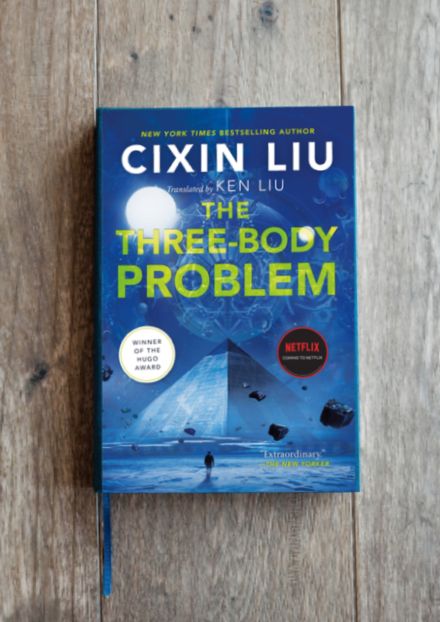
The fruit of a military program in China’s cultural revolution, humans make contact with an extraterrestrial species, the Trisolarans, only to discover that they are fleeing destruction on their own world and seek to conquer a new one. Factions arise and defenses are prepared before an uneasy truce is reached, but will these civilizations survive in a chaotic universe?
Why we recommend it: Blending themes of history, science, politics, and philosophy, the Three Body Problem is a thought-provoking reflection on the role of science in society and of the Fermi paradox, the incongruence between the lack of evidence for extraterrestrial life and its apparent likelihood in the universe. It is recommended for readers who prefer harder science fiction (based on more plausible scientific advancements).
2. The Culture series by Iain M. Banks

Considered space opera, the series is a collection of ten stand-alone books that describe the Culture and their interactions with other civilizations throughout the cosmos. The Culture is a utopian, post-scarcity society made up of multiple humanoid species and highly advanced artificial intelligence.
With automated production and no need for work, the members of the culture often struggle to find meaning as well as whether or not to intervene in the affairs of other, less developed civilizations. The series begins with a war between The Culture and the expansionist Idiran empire, the effects of which go on to influence the society throughout the later works.
Why we recommend it: Though not without conflict, The Culture deviates from the common dystopian thread in the science fiction genre and presents a potentially hopeful future, particularly for the role of artificial intelligence. The stand-alone nature of the novels might be attractive to readers who are not trying to commit themselves to a journey of thousands of pages.
1. Revelation Space by Alastair Reynolds
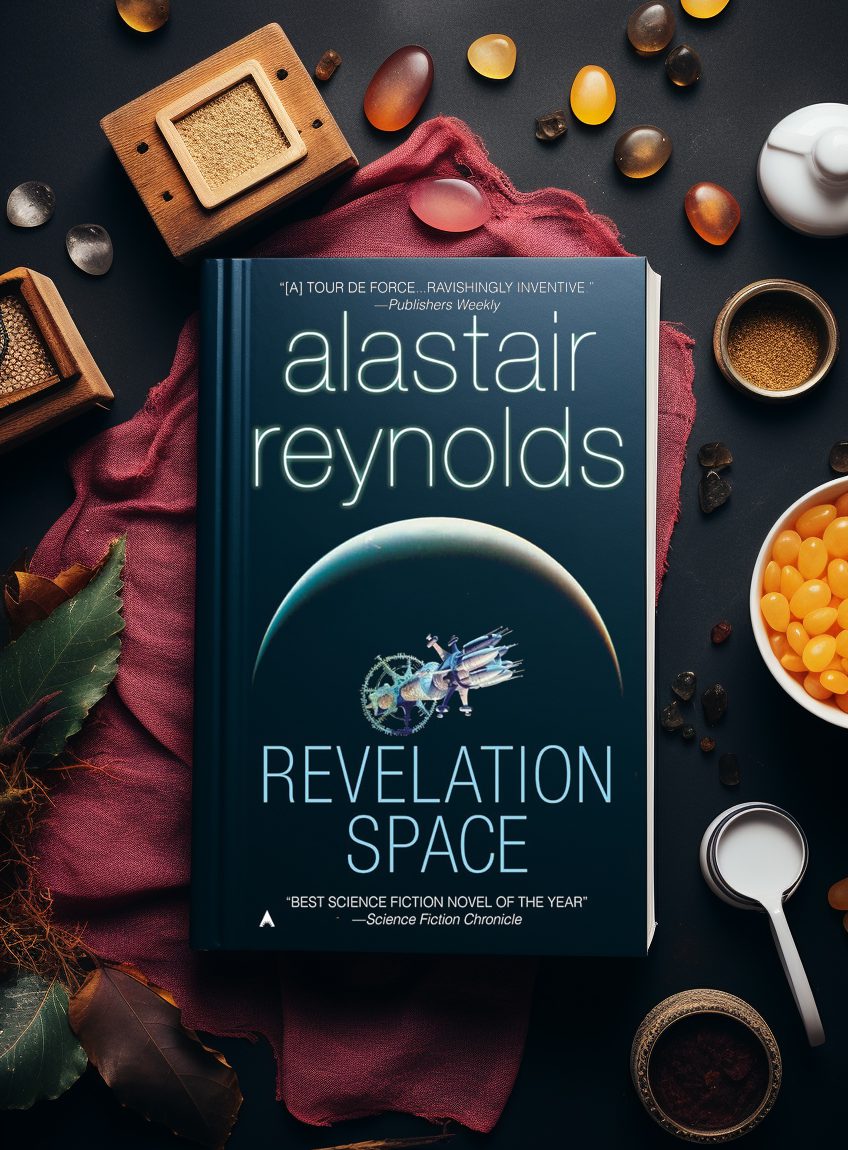
Another example of harder science fiction, Reynolds has created an abundant universe in Revelation Space. The series consists of four novels making up The Inhibitor Sequence, with another four taking place within the universe along with a collection of short stories and novellas. With humanity spread throughout the cosmos, the series begins with archaeologist Dan Sylveste who is studying the extinct Amarantin race on planet Resurgum.
His story is woven with several others as they uncover the galactic past and discover a threat to humanity, the Inhibitors, an ancient race of aliens-turned-machines.
Why we recommend it: Revelation Space is another intriguing exploration of the Fermi Paradox. While remaining ‘hard,’ Reynolds did not allow this commitment to limit the development of his vast universe or the weight of the events that take place within. Readers may also enjoy elements of Lovecraftian horror included in the series.
These 10 science fiction book series offer a journey through imaginative worlds, thought-provoking themes, and unforgettable characters. Whether you’re a seasoned sci-fi fan or just diving into the genre, these series are sure to transport you to galaxies far away and ideas that stretch the limits of possibility. Which series will you explore next? Let us know your favorites in the comments below!















